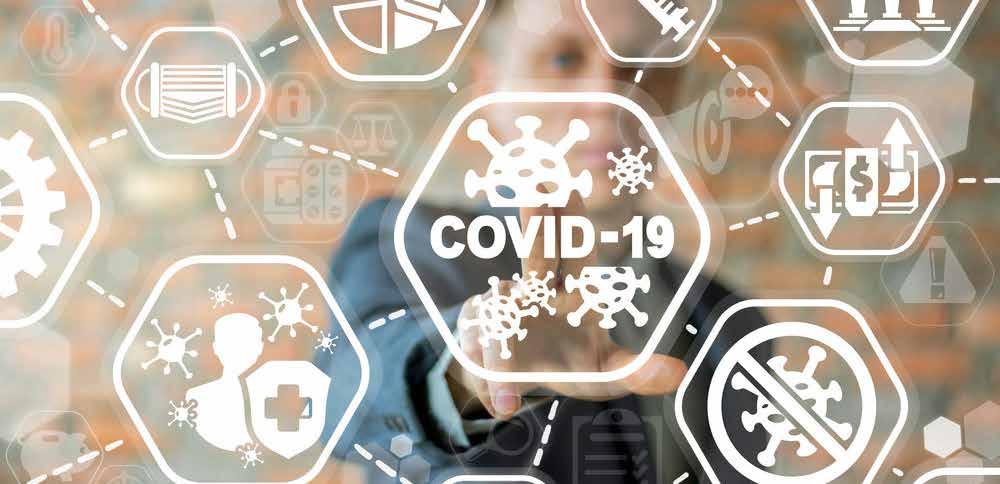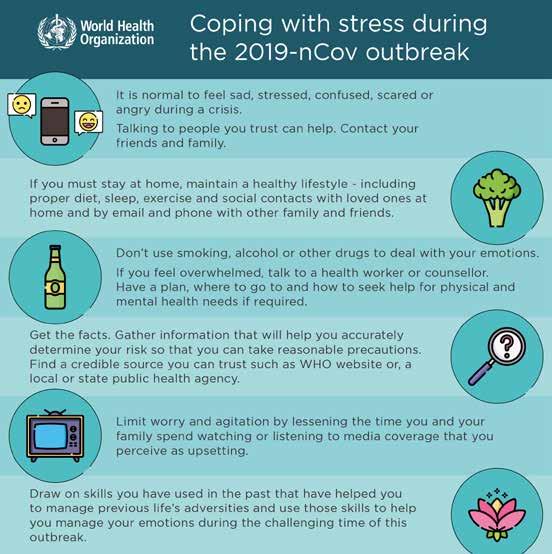
3 minute read
Volume 2, Issue 12 11th March 2020 CPD DIGEST
Coronavirus Burnt Out!
COVID-19 Burnt Out! Dr. Angie Wigford, Educational Psychologist, Dover Court International School, Singapore
Here in Singapore we are a few weeks behind China but ahead of much of the rest of the world in terms of our experience with the COVID-19 outbreak. It is beginning to take a toll in insidious ways and it seems that this might be an appropriate time to acknowledge the longer-term mental health impact, particularly from the perspective of the international school system.
COVID-19 Burnout involves accumulating stress for a wide range of reasons including: • It’s gone on too long and it seems that there’s no end in sight • There have been a significant impact on things we were looking forward to • Big plans / long term goals have been affected • So many people (students, teachers, parents) have been disappointed / let down • Things keep changing • People in positions of responsibility may feel that they can’t ignore/deny it as much as they would like to because they have to keep updated and implement new regulations and restrictions daily • The worry is that the goodwill shown so far might go as this becomes a new type of normal • The whole thing is just overwhelming
The impact of this is likely to be a reduced capacity to empathise with others, raised irritability, anhedonia (feeling down), tiredness and difficulties getting a good night of sleep.
For some people this will be the thing that pushes them to do something that they may not otherwise have done (“the last straw”) such as ending a relationship or breaking a contract thereby adding to existing stressors.

So how do we address this? My theory would be that post COVID-19 psychological growth can be encouraged in the international school system at personal and professional levels through acknowledging the seriousness of the impact and looking ahead with an approach informed by psychology (preferably positive psychology).
We need to accept that things will never be quite the same again and we need to find ways to adjust.
The three key principles of Post-traumatic Growth theory apply: as this situation develops on a personal level there will be: 1. Changes in the perception of self – improved selfknowledge 2. Changes in relating to others – valuing others differently 3. Changes in priorities, appreciation and spirituality – approach to life

Taking a positive psychology approach, we can focus on two key aspects: making the best of the situation we find ourselves in and envisioning positive long-term outcomes.
1. Making the best of the current situation, for example: • Develop self-awareness (especially of current and new effective coping strategies) • Develop supportive professional and personal relationships – work on the challenging ones and be aware of how to reach out to people. • Get together - have fun! • Be compassionate and accepting (reduce pressures if appropriate). • Ask for help – help others. Create opportunities for this to happen.
2. Envisioning better futures, for example, in the future there will be: • Vastly improved understanding of remote teaching and learning • Better understanding of social media feeds and their impact • Wiser, stronger staff and students • Improved / tested school systems • Better global management of these issues in the future • Much better environmental awareness The COVID-19 outbreak will change things and many people and systems will bounce back stronger. However, at the moment many people will be experiencing high levels of stress and in order to avoid COVID-19 Burnout, awareness of the psychological pressures of the outbreak may be used to help mitigate potential damage.
References: Calhoun & Tedeschi (2006) Handbook of Posttraumatic Growth: Research and Practice. Erlbaum, NJ. Wedel, M & Wicks R.J., (2012) Primer on Posttraumatic Growth: An Introduction and Guide. Wiley, NJ.
Written by Dr Angie Wigford, Educational Psychologist for Dover Court International School, Singapore and Lead Psychologist at International Educational Psychology Services Ltd.


